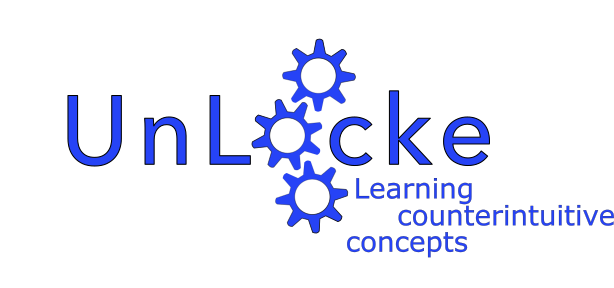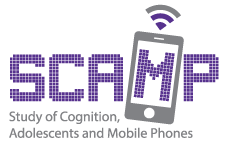Here are some of the externally funded projects taking place or recently completed within the CEN.
Title: UnLocke – Learning of Counterintuitive Concepts (http://unlocke.org/)
Principal Investigators: Denis Mareschal, Michael Thomas, Iroise Dumontheil (Birkbeck), Andy Tolmie, Emily Farran, Kaska Porayska-Pomsta, Sveta Mayer (Institute of Education), Derek Bell (Learnus)
Funder: Education Endowment Fund and Wellcome Trust
Project description: UnLocke is a project to develop and test software that aims to improve pupils’ ability to “inhibit” irrelevant prior knowledge when learning new concepts in 100 primary schools. When learning new concepts in science and maths, pupils must be able to inhibit prior contradictory knowledge and misconceptions in order to acquire new knowledge successfully. This skill of “interference control” varies between pupils, with variation evident from an early age. Disadvantaged pupils seem to have weaker control skills than their wealthier peers. The project will use a computer game to train pupils’ ability to control such interference. Pupils in up to 100 primary schools will undertake 15 minutes of exercises 3 times a week, at the beginning of maths or science lessons. In the game, a child-friendly character will try to solve problems with help from the player, providing prompts and suggestions. The aim is to train the pupils to inhibit their initial response, and instead give a more delayed and reflective answer. Exercises will relate to specific maths and science content. For example, exercises will help pupils to realise that mice and elephants have the same-sized cells, or that the world is round despite seeming flat. Teachers (or Teaching Assistants) will receive a half-day training workshop to understand the content and background, but the hypothesis is that interference control improves best with practice, not through a change in pedagogy. In terms of existing research, evidence from neuroscience supports the hypothesis that inhibition control is necessary to develop the reasoning skills required in maths and science. The proposed intervention draws on work which suggests that when being trained in inhibition control, participants begin to engage more of the parts of the brain required for logical thinking. Emerging neuroscience research suggests that the inhibition needs to happen in the networks that are specific to the skills being developed, thus the need for exercises to be related to specific subject knowledge. Primary schools are being recruited to take part in the research. For more information contact unlocke@psychology.bbk.ac.uk.
Papers:
Roy, P., Rutt, S., Easton, C., Sims, D., Bradshaw, S., & McNamara, S. (2019). Stop and Think: Learning Counterintuitive Concepts. Report from the National Foundation for Educational Research for the EEF.
Wilkinson, H. R., Smid, C., Morris, S., Farran, E. K., Dumontheil, I., Mayer, S., … & Mareschal, D. (2019). Domain-specific inhibitory control training to improve children’s learning of counterintuitive concepts in Mathematics and Science. Journal of Cognitive Enhancement, 1-19. doi: 10.1007/s41465-019-00161-4
Title: The Study of Cognition, Adolescents, and Mobile Phones (SCAMP)
Principal Investigators: Mireille Toledano (Imperial College), Paul Elliott (Imperial College), Iroise Dumontheil (Birkbeck), Martin Roosli (Swiss Tropical Public Health Institute), Michael Thomas (Birkbeck),
Funder: Department of Health
Project description: In the UK, 70-80% of 11-12 year olds own a mobile phone. Scientists remain uncertain as to whether children’s developing brains might be more vulnerable than adults to radio wave exposures to the head from mobile phones. This 3 year study will follow a group of 2,500 secondary school children to investigate whether children’s use of mobile phones and/or other technologies that use radio waves e.g. portable landline phones and wireless internet, might affect their neurocognitive or behavioural development e.g. memory, problem solving skills.
The study will be conducted in year 7 children (ages 11-12 years) from ~25 schools across outer London, with follow-up in year 9 (ages 13-14 years). Before commencing, approval will be obtained from an NHS research ethics committee. Parents will give consent and complete a questionnaire. Children will undertake a computer assessment conducted at their school, including questions assessing: how fast and accurately they can solve problems and recall images; behavioural problems e.g. hyperactivity; and use of mobile phones, other radio frequency (RF) technologies and lifestyle. Information on phone usage will also be obtained via mobile phone companies and from smartphone apps. This project uses innovative technology to record mobile phone usage without identifying users and content.
Papers:
Total recall in the SCAMP cohort: Validation of self-reported mobile phone use in the smartphone era
Night-time screen-based media device use and adolescents’ sleep and health-related quality of life
Title: Lexical retrieval difficulties in children: a new approach combining modelling of impairment and intervention to help word-finding
Principal Investigators: Wendy Best (UCL), Jackie Masterson (UCL-IoE), Michael Thomas (Birkbeck)
Funder: ESRC
Project description: We all experience difficulties in retrieving words occasionally. Children with difficulties learning language (around 7 per cent of the population) can experience considerable problems in retrieving words in their vocabulary. This difficulty can influence children’s relationships, self-esteem and education. The study has three strands. (1) The first involves collecting data from children with typically developing language (TDL) and others with word-finding difficulties (WFD). Accuracy and speed of naming, and related skills involving processing word meaning and sounds will be compared for children at different stages of development.(2) The second involves neurocomputational modelling of the processes involved in word retrieval. Constraints within the model can be varied to reflect the patterns shown by children TDL and with WFD. The model will then be used to predict optimal intervention approaches for children with different underlying difficulties. (3) And the third involves an experimentally controlled intervention in which children with WFD take part in one form of therapy most appropriate to their difficulty and one building on their strengths to determine which approach is more effective. Results on testing and on wider outcome measures will inform practice. By combining approaches from different disciplines, the research will inform understanding of typical and atypical language development and intervention.
Publications
Alireza, H., Fedor, A., & Thomas, M. S. C. (2017). Simulating behavioural interventions for developmental deficits: When improving strengths produces better outcomes than remediating weaknesses. In G. Gunzelmann, A. Howes, T. Tenbrink & E. Davelaar (Eds.), Proceedings of the 39th Annual Meeting of the Cognitive Science Society, London, UK, 26-29 July 2017. Pdf.
Best, W., Hughes, L. M., Masterson, J., Thomas, M. S. C., Fedor, A., Roncoli, S., Fern-Pollack, L., Shepherd, D. L., Howard, D., Shobbrook, K., & Kapikian, A. (2017). Intervention for children with word-finding difficulties: a parallel group randomised control trial. International Journal of Speech Language Pathology, Jul 31:1-12. doi. [Epub ahead of print]
Best, W., Fedor, A., Hughes, L., Kapikian, A., Masterson, J., Roncoli, S., Fern-Pollak, L., & Thomas, M. S. C. (2015). Intervening to alleviate word-finding difficulties in children: Case series data and a neurocomputational foundation. Cognitive Neuropsychology, 32:3-4, 133-168, DOI:10.1080/02643294.
Title: Learning, Reasoning and Science Education in the Developing Brain
Supervisors: Dr Iroise Dumontheil (BBK), Professor Denis Mareschal (BBK), Professor Andrew Tolmie (UCL-IOE)
Funder: ESRC CASE Studentship Award
Project description: Scientific reasoning encompasses the set of mental activities that enable individuals to make systematic and empirical discoveries about the physical and biological world. One major stage in scientific reasoning concerns the evaluation of newly gathered evidence and the integration of this evidence into one’s existing concepts, theories or models of the physical and biological world. Contrary evidence may require the revision of existing theories, or the development of an entirely new theory, a process called conceptual change. A key element of conceptual change is the need to overcome strongly held prior beliefs about a domain before new knowledge can be effectively assimilated.
Brain imaging data from adults have shown in a range of tasks that the interplay between the anterior cingulate cortex, which supports conflict detection, and multiple regions of the prefrontal cortex supporting attention, inhibitory control, working memory and the integration of information, plays a critical role in the detection of, and subsequent modification of beliefs and scientific understanding in response to conflict between new and prior knowledge (Fugelsang & Dunbar, 2005). These results in adults suggest that the neural basis of scientific reasoning lies in the detection of an anomaly, the inhibition of prior beliefs, and the integration of new information and concepts into an updated scientific understanding. Inhibitory and reasoning abilities and the capacity to integrate negative feedback to update a rule of response, all continue to develop during childhood and adolescence. However little research has been done regarding the interplay of these developing cognitive functions during scientific reasoning, and how possible interventions may improve children and adolescents’ scientific reasoning abilities.
This project will combine methods from experimental developmental psychology, educational research and neuroimaging. The PhD will have three aspects: (1) a baseline neuroimaging and behavioural study will examine the predictive value of computerised measures of inhibitory control, and reasoning in explaining children and adolescent’s ability to learn counterintuitive concepts, and record fMRI data while participant perform a task on inhibition in scientific reasoning adapted from the adult studies by Dunbar and colleagues. (2) a series classroom-based studies will capitalise on the time spent by the student at a local school and involve observation of science teaching, identification and assessment of which elements of inhibition and knowledge suppression are most effective in helping children learn new concepts in the classroom. (3) a short classroom-based intervention programme will be designed based on the classroom studies. Children and adolescents exposed to this intervention and control children and adolescents not exposed will be reassessed on the behavioural and fMRI paradigms tested in stage 1. The results will reveal the behavioural and functional correlates of the intervention, in particular with a focus on whether the detection and integration of conflicting information during scientific reasoning will be improved via improved inhibitory control skills.
Papers:
Inhibitory control and counterintuitive science and maths reasoning in adolescence
Title: Spatial Cognition as a contributor to the development of Science, Technology, Engineering and Mathematics (STEM) skills
Principal investigators: Dr. Emily Farran (UCL-Institute of Education), Prof. Michael Thomas (Birkbeck)
Funder: Bloomsbury Colleges PhD studentship
Project description: Spatial ability involves perceiving the location and dimension of objects and their relationships to one another; it is core to everyday living (giving directions, understanding diagrams, packing a bag). Spatial ability in childhood is a predictor of expertise in adulthood in Science, Technology, Engineering and Mathematics (STEM) subjects (Wai et al., 2009). This PhD studentship focuses on the development and training of spatial thinking and specifically how this impacts mathematical competence in children. A powerful tool in enabling spatial thinking to develop, which will be used in this studentship, is spatial language. This is a novel approach to training spatial thinking. In this studentship, the student will first establish the developmental relations across space and mathematics cognitive skills in a cross-sectional sample of children between 5 and 10 years. The student will then develop tasks which train or prime spatial thinking in children and explore the impact of these on small scale spatial cognition, as well as large scale spatial cognition (i.e. navigation, using our established virtual reality set-up). The student will also determine the extent to which training spatial abilities transfers to improvment on number and maths tasks. This research is important if we are to push forward our understanding of the development of spatial cognition, the effects of exposure to spatial information, and how this impacts mathematical skills.



